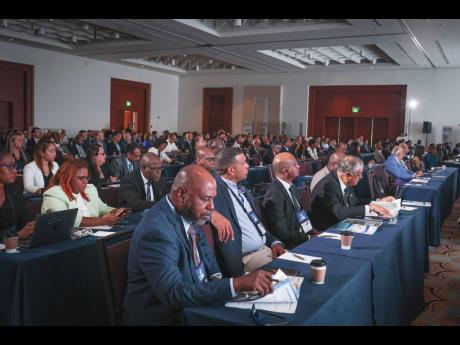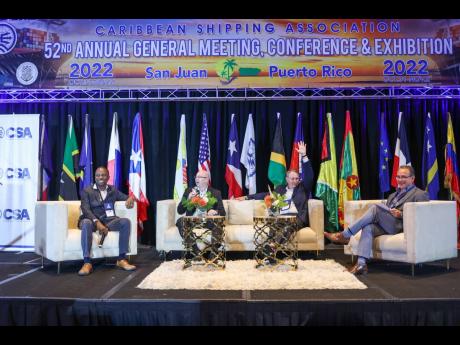Future of the maritime industry takes focus at CSA conference
The prospects for the maritime sector took centrestage on day two of the Caribbean Shipping Association’s (CSA) 52nd Annual General Meeting, Conference and Exhibition in San Juan, Puerto Rico on November 1.
The more than 300 delegates present were urged to consider the industry’s prospects in the areas of maritime law, decarbonisation, port dynamics, supply chain and logistics, and cruise terminal development.
The day’s session began with ‘Unifying and Advancing Private Maritime Law and Practice: The Legal Framework of the Bill of Lading’, presented by Najla King, managing director of CariMarine Industry Development and Consultancy Services. In her presentation, which was moderated by Shipping Association of Barbados president, Nazilia Simone Phillips, King said the CSA and its members could benefit from including a regulatory development dimension to its portfolio in terms of private commercial maritime affairs.
That discussion was followed by a presentation on ‘Leveraging Your Unique Strengths as a Family Business’, which was led by Daniel Van der Vliet, executive director of the Smith Family Business Initiative at Cornell University. Van der Vliet said family businesses dominate the global economy and will continue to play a key role to build trust and provide essential services as publicly owned corporations become larger and uncertainty pervades. The session was moderated by Anibal Ochoa, commercial director of Sociedad Portuaria Regional de Cartagena.
The importance of decarbonisation, the removal or reduction of carbon dioxide in the atmosphere, was brought to the fore during a panel on ‘Low Carbon Pathways in Caribbean Shipping and Ports Services’. The panel included presentations by Eduardo Pagan, vice-president and general manager of Tote Maritime; Nelson Mojarro, head of Innovation and Partnerships at the International Chamber of Shipping (ICS); Roberto Aiello, principal regional energy specialist at the Inter-American Development Bank; Sita Narayanan, director of the Port of Guadeloupe; and moderator Philip Gray, managing director of GrayShip BV.
Presentations on ‘Port Dynamics in the Caribbean Region and Latin America’ by Sabine Bajazet, communications and external affairs manager at CEIBA, and ‘Insight on Supply Chain and Logistics and the Outlook for 2023’ by Lars Jensen, CEO of Vespucci Maritime followed. The latter was moderated by Juan Carlos Croston, vice-president of marketing and corporate affairs at Manzanillo International Terminal and CSA immediate past president.
Jensen shared that IMO2023, measures to target vessel efficiency and carbon intensity will become effective in the coming year and have significant implications for the industry. He said the measures will gradually work themselves into the market, with estimates suggesting they will reduce effective capacity by as much as 10 per cent as vessels will gradually move slower to comply.
Reijmers said the cruise industry will see the number of passengers exceed that of pre-pandemic levels in the coming year. The pandemic showed volatility in revenue models, he shared, noting that resultant persistent pressure made it challenging for organisations to eliminate high debt. The post-pandemic cruise market will require resilience and shifting market dynamics, which includes increased levels on experience and quality and smaller and more private feel destinations.


